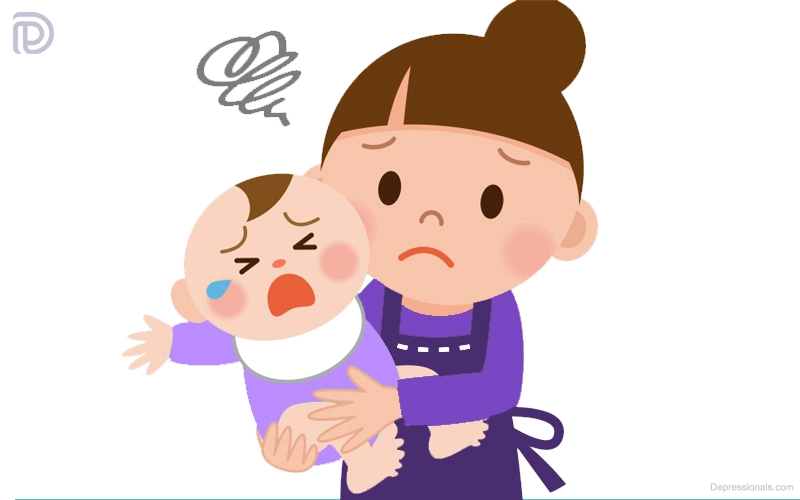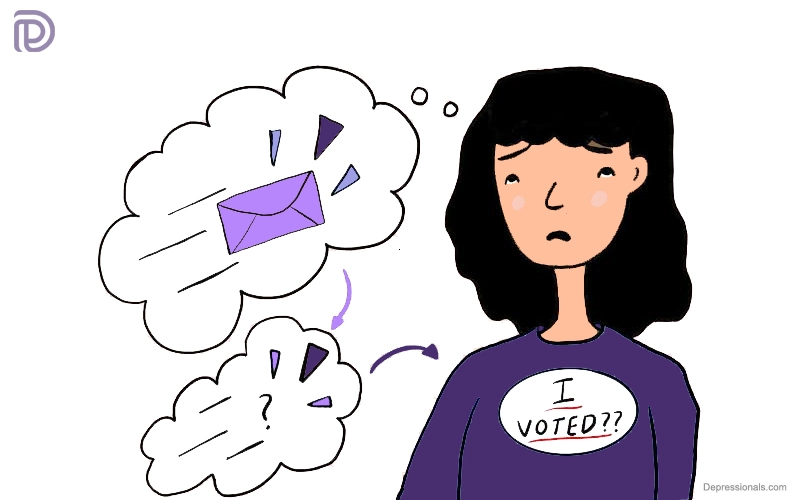What is stranger anxiety?
Stranger anxiety reaction occurs when a baby is left in the care of a person that is unfamiliar to him.
A new baby is frequently content to be handed from arm to arm without much fuss as long as they’re warm, full and comfortable. Occasionally, as babies get older, they begin to be afraid of being thrown into unfamiliar arms.
While it’s totally normal to want to hold your little one all the time, there are times when you want to drink a cup of coffee or just get out of the house for a couple of hours — because let’s be honest, mama needs a break!
When a new babysitter or stranger is in your child’s presence, you may find it frustrating when your once easygoing baby becomes a sobbing, clingy mess. It’s normal for your child to exhibit this behavior.
Often, stranger anxiety begins around 6 to 8 months of age and is a perfectly normal developmental stage. When a baby is between 12 and 15 months old, stranger anxiety usually peaks and then gradually decreases.
Anxiety over strangers coincides with a child’s developing sense of order and organization. As an infant develops stranger anxiety, they begin to realize that their relationship with the people they spend the most time with (typically their parents) is different from their relationship with strangers, especially those they don’t know very well.
Baby recognizes this and seeks out the familiar and cries in distress when facing an unfamiliar situation.
Read: COVID Anxiety Syndrome
Stranger anxiety vs. separation anxiety
Separation anxiety and stranger anxiety frequently develop simultaneously, but they are distinct developmental milestones.
Separation anxiety is a reaction to being left alone or separated from parents or primary caregivers; stranger anxiety is a reaction to meeting or leaving with unfamiliar people.
If a child feels anxious when left with a familiar caregiver or grandparent, it is likely that they are suffering from separation anxiety, not stranger anxiety.
Stranger anxiety manifests itself when a baby cries or cries when it is approached by someone unfamiliar or when left alone with someone new.
What to look out for
Even though stranger anxiety is common and expected, the intensity, duration, and method by which an individual baby manifests distress can vary greatly from infant to infant.
Infants may “freeze” in your arms as a way of expressing their distress. When the stranger leaves or they start to feel more comfortable around them, they might remain very still and quiet with a frightened look on their faces.
Other babies may keep clinging tightly to you, cry or hide their faces in your chest as a means of expressing their distress.
If your toddler is verbal and mobile, he or she might hide behind you or verbally express the wish to stay with you or be held.
Read: How to Calm Anxiety Attacks
What the experts say
Researchers have explored stranger anxiety in addition to separation anxiety. However, stranger anxiety research is more robust.
In a study published in 2017, researchers observed that babies who displayed increased fear between 6 and 36 months of age had greater chances of developing anxiety at 8 years of age.
There is an association between the anxiety levels of the infant and the maternal environment, according to a 2013 study of twin pairs that looked at the factors that affect a baby’s anxiety, especially stranger anxiety. There is a combination of maternal factors as well as genetic factors that increase an anxiety-prone mother’s likelihood of having an anxiety-prone baby.
Additionally, a study from 2011 suggests mothers are the primary focus of research, but fathers are also important (Maybe it’s about time they noticed?) They noted that sometimes the father’s reaction to strangers and social anxiety may be more significant than the mothers.
Why do all these things matter? Is every baby who experiences stranger anxiety going to be anxious in elementary school? What about parents who struggle with anxiety? Certainly not. The social, emotional, and developmental growth of a child is affected by so many factors.
Although you can’t prevent a child’s fear or anxiety, particularly during this phase of development, you can be aware of how you respond to the feelings they express.
Read: How to Overcome Fear
How to overcome stranger anxiety in babies
There are several ways you can help your baby through this difficult stage using care, empathy, and kindness, though the distress associated with stranger anxiety is normal.
- Every child is unique. It will take a while for a baby to become comfortable around new people. You may be better able to muster the patience necessary to help your child work through the emotion of stranger anxiety when you acknowledge that their hesitancy to interact with new people is normal.
- Make sure your baby feels comfortable meeting new people. You can do this by introducing new people slowly rather than abruptly. You may wish to have the new babysitter spend some time with your family together before leaving your child with them alone. You can play some games with your babysitter and get to know them. A happy and positive parent will make a positive impression on their child.
- Make sure you gradually warm up even with your closest friends. You may find that people your baby previously enjoyed seeing, such as grandparents, aunts and uncles, family friends, or family members, suddenly become sources of stress for your child. When your baby is acting like a stranger to his or her loving grandparents, it can be especially challenging, but it is quite normal for them to be fearful. A gradual warm-up period will make interactions more positive if it allows for their comfort.
- Help your baby cope with these big, uncomfortable emotions. Children should not be forced to rein in their responses prematurely or ignored, according to experts. Trying to force a baby into being with or being held by a stranger before they are ready can raise their anxiety levels and make their next encounter with a stranger even more stressful.
- Keep a positive attitude and remain calm. It is important to maintain a positive and comforting tone and demeanor to soothe your baby when they are distraught about being left with someone new or being introduced to someone new. Whenever they seem distressed, you can hold them, talk to them, or give them lots of hugs and kisses until they start feeling more comfortable.
- Manage expectations of others. If grandparents aren’t expecting it, it may cause hurt feelings if your baby is reluctant to be cuddled. Talking to others in advance about how your baby needs time to warm up and giving them suggestions for interacting with your baby when they meet can help them manage their expectations and create a successful introduction.
- Advice is offered to eager friends (whom the baby considers strangers). You can recommend that they speak quietly and gently or offer a familiar toy in order to make introductions more comfortable for the baby. Before they try to hold or cuddle your little one, let them get comfortable for a while.
- Young babies should be introduced to new people often. When it’s safe to do so, wear your baby facing outward in their carrier so they can get used to seeing new faces and to be able to model warm, comfortable interactions with strangers. In addition, if you are comfortable having others handle and play with your young child, you can also allow them to do so.
Read: How to Deal with Social Anxiety
Summary
Both you and your child may face challenges during the development of stranger anxiety. You might find yourself frustrated because your little one seems fidgety, clingy, or inattentive when they are going through big, scary emotions.
Though stranger anxiety is normal, it typically passes before a child’s second birthday with just the right amount of warmth and comfort.
During the stranger anxiety phase, keep a calm and warm disposition while your child experiences distress, and remember to cuddle and comfort them as needed. It will make your days ahead happier if you give them time and stay patient.






I just wanted to write down a simple comment to be able to express gratitude to you for some of the fantastic tricks you are placing on this site. My time consuming internet lookup has finally been paid with incredibly good facts and strategies to share with my colleagues. I would say that we site visitors are really endowed to exist in a perfect community with very many marvellous people with good tips and hints. I feel pretty blessed to have used your webpages and look forward to really more awesome times reading here. Thanks a lot once more for everything.
Great blog here! Also your website loads up very fast! What web host are you using? Can I get your affiliate link to your host? I wish my website loaded up as fast as yours lol